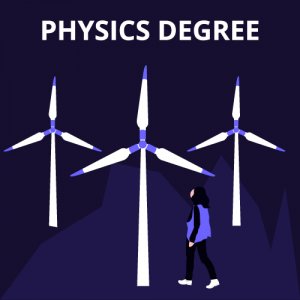What Kind of Accreditation Should My Degree Program Have?
Before you enter the university, get assured that the university has the proper accreditation.
The accreditation plays an important role not only for the educational institutions but also for their graduates who are searching for a job.
As you finish your degree and look for a job, your potential employer who will interview you will definitely pay attention to the level of accreditation of your alma-mater.
You may ask what kind of accreditation should your degree program have?
We guess that you definitely do not want to waste your money on a degree from the university without accreditation, as your future employer will doubt about your qualification.
Accreditation is a stamp of approval which is given by the accrediting agencies which are entitled by the Department of Education.
There are two kinds of accreditation to distinguish: program and institutional accreditations.
Thus, program accreditation means that the stamp of proof of its quality got the separate program or discipline.
Meanwhile, institutional accreditation is given to the whole university or college in general.
The accrediting organizations are separated into national and regional accrediting agencies.
As a rule, the stamp of approval given by the regional accrediting agency is considered to be the confirmation of the credibility of the educational institution.
There are some well-known regional accrediting agencies for you to be aware:
Program Accreditation
- New England Association of Schools and Colleges
- Northwest Commission on Colleges and Universities
- Southern Association of Colleges and Schools Commission on Colleges
- The Higher Learning Commission
- Middle States Commission on Higher Education
- Western Association of Schools and Colleges
Program-Specific Accreditation of Physics Degree
You will be required to get a degree with program-specific accreditation from a regional accrediting agency, in order to become a licensed Professional Engineer (PE).
One of a nonprofit accrediting agency for programs is ABET.
ABET gives accreditation to programs in computing, natural science, engineering, and engineering technology.
What Kinds of Physics Degrees Are There?
Associate Degree in Physics
Typically, an Associate’s Degree in Physics is supposed to be a two-year program and requires 2 years to complete.
This very associate’s degree will be a threshold to your future career and also the first step to a bachelor’s degree.
During the associate degree program you will get the basic knowledge in subjects like organic chemistry, and Newtonian law, get acquainted with the introduction to this study.
You’ll also take a number of mathematics courses.
If you plan to get the immediate job position, then you could qualify for factory-level work in mechanical maintenance, technical assembly, or laboratory assistance after you get the associate degree.
Courses that you will take:
- Introduction to Physics
- Physics for Scientists and Engineers
- Differential Equations
- Electricity and Magnetism
- Calculus I, II, III
- Waves, Optics, and Modern Physics
Bachelor’s Degree in Physics
A Bachelor’s Degree in Physics is a 120-credit undergraduate degree in physics and will provide you with introductory-level instruction in both life sciences and mathematics.
As well as deep understanding of subjects like aeronautics, information technology, mechanics, thermodynamics, and climatology.
Your bachelor’s degree program will be orientated on maths-focusing subjects like computational sciences and calculus.
After you finish this degree, you will be open to a number of career opportunities in the sciences, including laboratory assistant, healthcare technician, or mechanical professional.
During the bachelor’s program you will take such courses:
- General Physics I and II
- Classical Mechanics
- Thermodynamics
- Calculus I, II, III
- Electromagnetic Theory
- Mathematical Physics
- Modern Physics
What’s the Difference Between a BA and a BS in Physics?
The Bachelor of Arts in Physics provides a course of study in the humanities and liberal arts, what is beneficial if you want to enter into any related field, for example, industrial-organizational management, healthcare or information technology.
Meanwhile, the Bachelor of Science in Physics is the degree course orientated on research activity in physics or a similar field.
Master’s Degree in Physics
If you aspire to work in physics in the future, you will need to get a Master’s Degree in Physics.
This degree requires30 additional credit hours after your bachelor’s degree.
This degree will give you the possibility to hold research in the field of physics, where you can implement your skills in math and sciences.
You will also get the laboratory experience.
During the master’s program, you will learn deeply the astronomy, quantum physics, aerodynamics, electrodynamics, and others.
Getting your Master’s degree in physics together with a teaching certification qualifies you to teach science to the students in most public schools.
A masters degree is considered to be more reputable than a bachelor’s degree among employers.
So, a master’s degree will give you an advantage in your search for work as a laboratory specialist, an engineer or a government-funded researcher.
The courses you are going to take during the studying:
- Methods of Mathematical Physics
- Advanced Mechanics
- Electrodynamics
- Classical and Modern Physics
- Atomic Physics
- Quantum Mechanics
- Statistical Physics
- Biophysics
Ph.D. in Physics
The Doctorate or Ph.D. in physics is a scientific degree in the field of physics.
This degree usually requires up to seven years to complete.
After you finish the degree you will be a scholar, will be able to teach students, do researches, or work for private or government research association.
Some of the Courses that you will take
- Relativistic Quantum Theory I and II
- Astrophysics
- String Theory
- Nuclear Physics
- Particle Physics
- High Energy Physics
- Condensed Matter Physics I and II
- Effective Field Theory
What Kind of Licensing or Certification Do You Need?
What is the Difference Between Licensing and Certification?
A non-governmental body or professional organization usually award certification in different fields to the graduates with or without a degree.
On the contrary, licenses are awarded by governmental licensing agencies only.
Also, by having obtained a license in this or that field, you will be a legally authorized employee.
To compare, the companies do not necessarily require certification due to the fact that asking for a certificate is not legal actually.
At the same time, if you want to have a license, be ready to meet the requirements like getting a degree or passing a state exam.
These are the main differences according to the Bureau of Labor Statistics.
Do You Need to Have a Physics License?
In case you are going to work at the top companies or do investigations which would show the highest level of competence in physics, you should demonstrate your physics license or certification to clients.
A number of institutions and regional academies position themselves as accredited organizations who give certificates to physics specialists.
One of the questions a future physician often asks is whether he or she can obtain or renew a Teacher of Physics certificate.
The answer is yes.
Besides, holding a physics degree can lead you to one of the following certifications:
- Astrophysics
- Calculus
- Mechanics
- Modern physics
- Molecular physics
- Optics
Popular Degree Programs
What Can You Do With This Degree?
Your Physics degree can be the path to numerous careers in the social and physical sciences.
You can choose among the top careers in your field:
- Agricultural and Food Science Technicians
- Agricultural and Food Scientists
- Anthropologists and Archeologists
- Atmospheric Scientists and Meteorologists
- Biochemists and Biophysicists
- Chemical Technicians
- Political Scientists
- Psychologists
- Sociologists
- Survey Researchers
- Urban and Regional Planners
- Environmental Science and Protection Technicians
- Environmental Scientists and Specialists
- Epidemiologists
- Forensic Science Technicians
- Forest and Conservation Technicians
- Chemists and Materials Scientists
- Conservation Scientists and Foresters
- Economists
- Natural Sciences Managers
- Nuclear Technicians
- Physicists and Astronomers
- Geographers
- Geological and Petroleum Technicians
- Geoscientists
- Historians
- Hydrologists
- Medical Scientists
- Microbiologists
- Zoologists and Wildlife Biologists
How Much Can You Make With This Degree?
The Bureau of Labor Statistics reports about the average annual salary statistics:
- Bio-Physicist— $82,180
- Physicist— $114,870
- Computer and Information Research Scientist— $111,840
- Chemical Technician— $45,840
- Medical Scientist— $80,530
- Nuclear Technician— $79,140
What Professional Associations or Societies Should You Join?
If you want to keep in touch with the people of your occupation, get new professional acquaintances or represent yourself as a member of the psychological professional community, then you have to attend some Professional Psychology Societies or Associations.
Professional associations and societies usually hold lectures, seminars and other meetings, where you also can take part.
The American Physical Society is an association which provides advocacy, research publications, outreach, international activities, and so on.
The Federation of American Scientists is aimed at providing preemptive solutions in order to avoid catastrophic threats to the nation.
The National Society of Black Physicists is an association which provides the educational and professional advancement of African-American’s within the field.
The American Association for Physics Teachers is an association for teachers and tutors who want to share the knowledge of physics through teaching.
Summary
To summarize, if you are really interested in getting a Physics degree, you will definitely have to get a bachelor’s or master’s degree.
The knowledge of physics will help you to build a prospective career and dedicate your life to science.
We hope that this article was useful for your better understanding of a topic.
See More Degrees
What can you do with a degree in...







